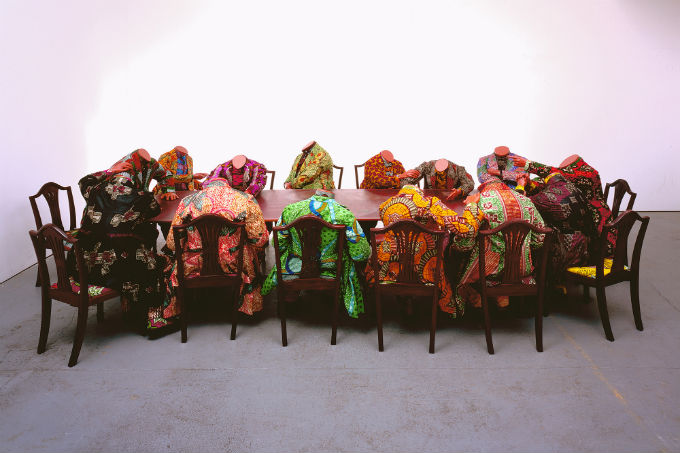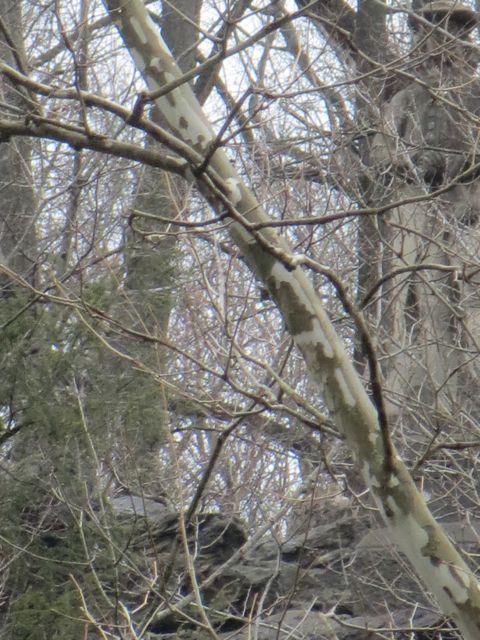Serendip is an independent site partnering with faculty at multiple colleges and universities around the world. Happy exploring!
Anne Dalke's blog

More on Peter Singer
I'd promised you some links to the work of Peter Singer.
Unspeakable Conversations, by Harriet McBride Johnson, is the 2003 NYTimes article I referenced, written by a disabled activist who agreed to two speaking engagements with Singer @ Princeton. You might also have a particular interest in Animal Liberation, his 1975 book which is pretty much thought to be the founding philosophical statement for that movement; and "Family, Affluence and Morality," written in 1972, is probably his best-known essay. But there's PLENTY more @ http://www.utilitarianism.net/singer/

To inspire your reflections on Jody's prompt...
--"what are some ways we might think about outdoor spaces as sites of learning/education?"--here are a few images from an "outdoor classroom" that David just told me about; I've been @ BMC for over thirty years, and had never seen this space. What-and-how might we learn here?

How to host a difficult conversation?
By 5 p.m. on Sunday, post as a comment here your reflections on one of the central questions raised by our reading of Coetzee's novella, The Lives of Animals: what does it tell us about the possibility that vegetarians and meat-eaters (or anyone w/ decidedly opposed views) can actually enter into productive dialogue? Might some divisions be so deep that common academic training, common culture, or even familial ties can not bridge the gap? (Think of this as a warming-up for your next paper, due next weekend: “how much latitude can we allow”? At what point are we "allowed" to "call the question," and refuse further conversation?)

SO much energy
in our lit classroom, during the past two sessions--it left me breathless today (and I loved it!). Wanting, like Jessica, to use this spillover place that is Serendip, which gives us room for what we don't have "in-class" time for, I want to follow-up on some of the distinctions Simona's been making about 'real facts' and 'subjective stories,'
starting with some short readings: a piece in Geology, 2014 about The science of subjectivity; and three talks, delivered in a faculty discussion group 10 years ago--one by Arlo Weil, another by David, another by me...
and then there's this March 31st NYTimes piece about how College Classes Use Arts to Brace for Climate Change...
To be continued (I hope!)

crime plummets in camden
To discuss: "full deployment of 160 'eye-in-the-sky' cameras, and other
high-tech equipment that remotely monitors whole swaths of the city...
'It's like Big Brother, but I just don't care.... If they don't get jobs, things will stay the same'"....
http://www.philly.com/philly/news/new_jersey/Crime_plummets_in_Camden_could_a_city_recovery_be_underway.html

allegorical panels
This looks like remarkable work-- http://prisonphotography.org/2014/03/05/prisoners-39-panel-allegorical-mural-made-from-bedsheets-hair-gel-and-stacks-of-newspapers/ --and it was on display @ The Church Studios, in the Fairmount section of Philadelphia.

Re-imagining the iconography of maps
I just came across a very powerful illustration of the central idea of our course: that all representations are limited. This article in today's edition of The Guardian, on Why Google Maps gets Africa wrong, tells the interesting story of the limitations of maps. There are strong eco- and econ-threads in all of this, from the early mapmakers who would "fill their gaps" with "elephants for want of towns," through the Berlin Conference, where "Europe's colonial powers coloured in their territories with their imperial hue-of-choice" (we saw this represented in Shonibare's "Scramble for Africa")--

--through today's Google maps, "driven by commercial multinational profitability" and "the prospects of advertising revenue." Google maps are "produced on the west coast of America," which "necessarily affects how they are made." Imagine, instead, that "all of Google's data and programming ability was suddenly in the hands of a Namibian agriculturalist, a Sahelian nomad or a Senegalese fisherwoman – the maps they would conjure up would be completely different. They might well prioritise soil types over Starbucks, wells over Walmarts and the state of land degradation over panoramic street views of American towns."
Imagine.

Climate Signals, Growing Louder
http://www.nytimes.com/2014/04/01/opinion/climate-signals-growing-louder.html --
or, 'how much latitude can we allow,' in telling our stories?

representing toleration
 |
 |
dunno...somehow seems that my misty, off-center image represents "toleration"
better than does the brightly-lit one, which seems so...um, judgmental?


